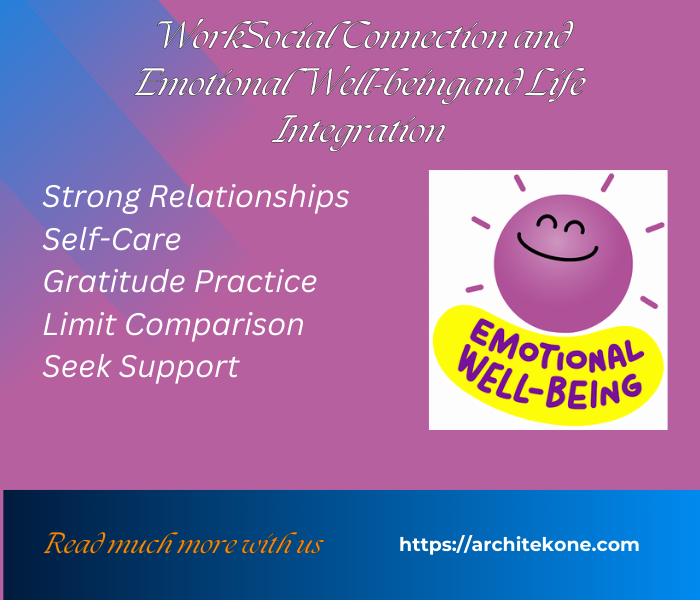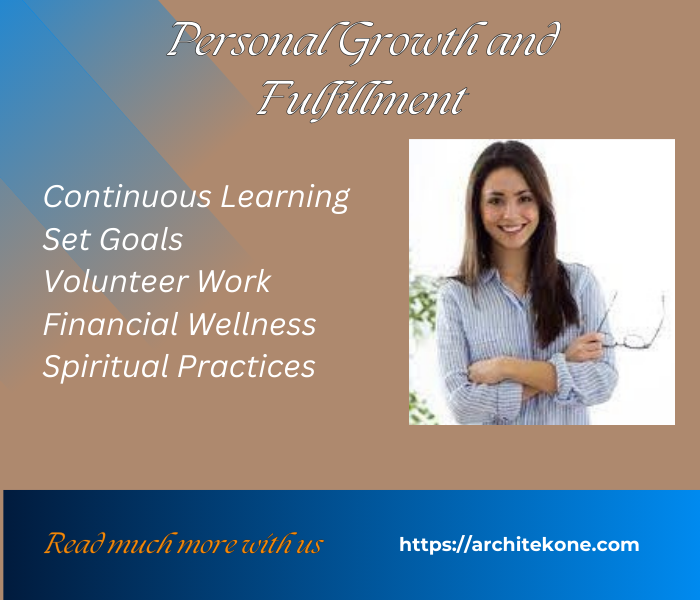In today’s fast-paced world, finding balance can feel like an elusive pursuit. Between career demands, personal relationships, and self-care, it’s easy to feel overwhelmed. However, living a balanced life is essential for overall well-being and happiness. This guide offers 25 practical tips to help you create harmony in your life.
From managing stress and prioritizing self-care to cultivating meaningful relationships and setting achievable goals, these tips provide a roadmap to a more balanced and fulfilling existence. Whether you’re seeking to improve your work-life balance, enhance your relationships, or simply find more peace and joy in your daily life, this guide is your starting point.
Let’s embark on this journey together and discover the keys to a balanced and fulfilling life.
Mind and Body Wellness

Prioritize Sleep
Adequate sleep is foundational for optimal physical and mental health. Establish a consistent sleep schedule to regulate your body’s internal clock. Create a soothing bedtime routine involving relaxing activities like reading, taking a warm bath, or practicing gentle stretches. Optimize your sleep environment by ensuring it’s dark, quiet, and cool. Limit exposure to screens and stimulating substances like caffeine or nicotine before bed. Aim for 7-9 hours of uninterrupted sleep each night.
Regular Exercise
Physical activity is a cornerstone of well-being. Engage in exercises you enjoy to make it a sustainable habit. Whether it’s dancing, swimming, hiking, or weightlifting, find activities that suit your fitness level and preferences. Aim for at least 150 minutes of moderate-intensity exercise or 75 minutes of vigorous-intensity exercise per week. Incorporate strength training exercises to build muscle and improve bone health. Remember to listen to your body and gradually increase the intensity and duration of your workouts.
Healthy Diet
Nourishing your body with wholesome foods provides the energy and nutrients needed for optimal function. Prioritize whole grains, lean proteins, fruits, and vegetables for a balanced diet. Stay hydrated by drinking plenty of water throughout the day. Practice mindful eating by paying attention to hunger cues and savoring each bite. Limit processed foods, sugary drinks, and excessive amounts of saturated and unhealthy fats. Consider consulting a registered dietitian for personalized nutrition guidance.
Mindfulness and Meditation
Cultivate mental well-being through mindfulness and meditation practices. These techniques help reduce stress, improve focus, and enhance emotional regulation. Incorporate deep breathing exercises, body scans, or guided meditation into your daily routine. Find a quiet space to sit or lie down comfortably and focus on the present moment without judgment. Regular practice can lead to increased self-awareness, resilience, and overall life satisfaction.
Time Management
Effective time management is essential for productivity and reducing stress. Set clear goals and priorities, breaking down larger tasks into smaller, manageable steps. Utilize time management techniques like the Pomodoro Technique or time blocking to optimize focus and efficiency. Learn to say no to commitments that don’t align with your priorities. Delegate tasks when possible to free up time and energy. Regularly review your schedule and adjust as needed to maintain balance and avoid burnout.
Work and Life Integration

Set Boundaries
Establishing clear and consistent boundaries is essential for maintaining mental and emotional well-being. It involves defining limits on your time, energy, and emotional availability. Effective boundary setting requires assertive communication, where you clearly express your needs and expectations without guilt or apology. This enables others to respect your limits and reduces the likelihood of feeling overwhelmed or resentful.
Prioritizing self-care is intrinsically linked to boundary setting. By safeguarding personal time and energy, you create space for activities that nourish your mind, body, and soul. Saying “no” to additional commitments is often necessary to protect your boundaries and prevent burnout. Remember, it’s okay to prioritize your well-being over external pressures.
Time Off and Vacations
Regular breaks from work are crucial for preventing burnout and maintaining productivity. Scheduling time off and vacations allows you to recharge, reduce stress, and gain a fresh perspective. It’s essential to fully disconnect from work responsibilities during these periods to maximize the benefits of relaxation and rejuvenation.
Planning vacations and getaways provides opportunities to explore new places, engage in different activities, and create lasting memories. Whether it’s a weekend getaway or a longer vacation, these experiences can broaden your horizons and stimulate creativity.
Hobbies and Interests
Engaging in hobbies and interests outside of work is essential for overall well-being and personal fulfillment. These activities provide a much-needed escape from daily routines and allow you to explore your passions and talents. Hobbies can reduce stress, boost creativity, and enhance problem-solving skills.
Creating dedicated time for your hobbies is crucial. Whether it’s painting, playing an instrument, gardening, or spending time in nature, these activities offer opportunities for relaxation, enjoyment, and personal growth. By nurturing your interests, you cultivate a sense of purpose and satisfaction beyond your professional life.
Digital Detox
In today’s digitally connected world, taking regular breaks from technology is essential for mental health and well-being. A digital detox involves disconnecting from electronic devices such as smartphones, computers, and televisions. This practice allows you to reduce information overload, improve focus, and enhance mindfulness.
Establishing boundaries for screen time is crucial. Designating device-free zones in your home, such as bedrooms and dining areas, can help create a healthier relationship with technology. Mindfulness techniques, such as meditation and deep breathing, can complement your digital detox by promoting present-moment awareness and reducing stress.
Delegate and Outsource
Delegating and outsourcing tasks is a powerful strategy for managing workload and preventing burnout. By sharing responsibilities with others, you free up time and energy to focus on higher-priority tasks or activities that align with your goals.
Building strong relationships with colleagues or external service providers is essential for successful delegation and outsourcing. Clear communication, trust, and mutual respect are key factors in ensuring that tasks are completed efficiently and effectively. By effectively delegating and outsourcing, you can improve productivity, reduce stress, and achieve a better work-life balance.
Social Connection and Emotional Well-being

Strong Relationships
Cultivating deep and meaningful connections is essential for overall well-being. Prioritize open and honest communication with loved ones, creating a safe space for expressing thoughts and feelings. Practice active listening to truly understand and validate their perspectives. Spend quality time together engaging in shared activities or simply enjoying each other’s company. Celebrate milestones, both big and small, to strengthen bonds and create lasting memories. While maintaining closeness, it’s equally important to respect individual boundaries and personal space. By fostering mutual trust, support, and empathy, you can build strong relationships that provide a solid foundation for emotional well-being.
Self-Care
Prioritizing self-care is fundamental to maintaining good mental health. Nurture your physical well-being through regular exercise, balanced nutrition, and sufficient sleep. Incorporate relaxation techniques like meditation, yoga, or deep breathing into your routine to manage stress and promote calmness. Listen to your body’s signals and prioritize rest when needed. Cultivate a positive mindset by practicing self-compassion and gratitude. Remember, self-care is not selfish; it’s essential for your ability to care for others effectively.
Gratitude Practice
Cultivating a sense of gratitude can significantly enhance your overall well-being. Regularly acknowledging the positive aspects of your life shifts your focus from what’s lacking to what you already have. Keeping a gratitude journal can help you reflect on your blessings and develop a more optimistic outlook. Expressing gratitude to others strengthens relationships and creates a positive ripple effect. By practicing gratitude, you can cultivate a deeper appreciation for life’s simple pleasures and foster a sense of contentment.
Limit Comparison
Social media and societal pressures can often lead to comparing oneself to others. To protect your mental health, it’s crucial to limit these comparisons. Focus on your personal journey and progress rather than measuring yourself against unrealistic standards. Celebrate your unique qualities and strengths. Remember, everyone’s path is different, and comparing yourself to others can hinder your self-esteem and happiness. Embrace your individuality and strive for personal growth.
Seek Support
Building a strong support system is crucial for navigating life’s challenges. Surround yourself with people who uplift and encourage you. Share your thoughts and feelings with trusted friends, family members, or mental health professionals. Don’t hesitate to seek help when needed. Remember, asking for support is a sign of strength, not weakness. By connecting with others, you can gain valuable perspectives, receive emotional support, and build resilience.
Personal Growth and Fulfillment

Continuous Learning
Cultivate an insatiable curiosity and a lifelong commitment to personal and professional growth. Explore diverse avenues of learning, from academic pursuits and industry-specific training to hobbies and personal interests. Embrace challenges as opportunities to expand your knowledge and skill set. Develop a habit of reflective learning, analyzing experiences to extract valuable insights. Seek out mentors and role models who can inspire and guide your learning journey. By prioritizing continuous learning, you empower yourself to adapt to change, innovate, and unlock your full potential.
Set Goals
Define clear and actionable objectives that align with your values and aspirations. Create a balance of short-term and long-term goals to maintain motivation and focus. Break down larger goals into smaller, manageable steps to track progress effectively. Utilize goal-setting frameworks like SMART (Specific, Measurable, Achievable, Relevant, Time-bound) to enhance clarity and focus. Regularly review and adjust your goals as needed to stay aligned with your evolving priorities. Celebrate milestones to reinforce positive behaviors and maintain momentum.
Volunteer Work
Give back to your community while making a positive impact on the world. Discover volunteer opportunities that align with your passions and values. Develop new skills, expand your network, and build a sense of purpose. Experience the joy of helping others and fostering connections within your community. Cultivate empathy, compassion, and a broader perspective through volunteer work.
Financial Wellness
Establish a solid financial foundation by creating a realistic budget, tracking income and expenses, and setting clear financial goals. Build an emergency fund to prepare for unexpected challenges. Explore investment options to grow your wealth and achieve long-term financial security. Develop mindful spending habits and avoid impulsive purchases. Seek professional financial advice when necessary to optimize your financial well-being.
Spiritual Practices
Connect with your inner self and explore your spiritual journey through practices such as meditation, prayer, or mindfulness. Discover a sense of purpose, meaning, and connection to something larger than yourself. Cultivate gratitude, compassion, and forgiveness. Explore different spiritual philosophies and traditions to broaden your perspective. Create a personal spiritual practice that supports your overall well-being and provides solace during challenging times.
Lifestyle Balance

Simplify Your Life
Declutter your physical and mental space by focusing on what truly matters. Prioritize tasks, eliminate distractions, and create routines to streamline your daily life. Learn to say no to unnecessary commitments and focus on activities that bring you joy and fulfillment.
Nature Connection
Spend time outdoors to reduce stress and improve overall well-being. Engage in activities like hiking, gardening, or simply taking a walk in the park. Connect with nature through your senses by observing the beauty around you and appreciating the tranquility it offers.
Healthy Coping Mechanisms
Develop effective strategies to manage stress and challenges. Practice relaxation techniques such as deep breathing, meditation, or yoga. Seek support from friends, family, or professionals when needed. Prioritize self-care activities to replenish your energy and resilience.
Laughter and Play
Incorporate humor and fun into your life to boost mood and reduce stress. Share laughter with loved ones, watch comedies, or engage in playful activities. Playfulness can help you relax, connect with others, and foster a positive outlook.
Balanced Screen Time
Set limits on screen time to reduce digital overload and improve focus. Create designated screen-free zones and activities. Prioritize face-to-face interactions and outdoor experiences. Develop healthy habits to manage social media and online distractions.
Final Thoughts
Achieving a balanced life is a journey, not a destination. It’s about progress, not perfection. Remember, small steps can lead to significant changes. Be patient with yourself as you explore different strategies and find what works best for you.
Prioritize self-care, nurture relationships, and set realistic goals to create a life that brings you joy and fulfillment. Celebrate your successes, learn from challenges, and embrace the beauty of balance.
Remember, you deserve a life that feels harmonious and fulfilling. By incorporating these tips into your daily routine, you’re taking steps towards a more balanced and happier you.

